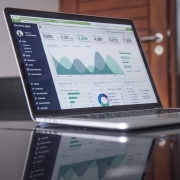- Performance Marketing in the New Normality - 20. May 2020
- Search engine marketing of the future - 10. May 2019
- Context beats keywords - 25. October 2017
The future of search engine marketing is fully automated and has already begun. As you read this, artificial intelligence is managing millions of AdWords campaigns on Google. Contradiction can still help to put the power of algorithms in their place, but there is no stopping the trend.
The traditional keyword has long been redundant as a sole targeting parameter. In the past two years, the level of partial automation has risen constantly. Responsive ads and smart bidding are already a reality and they hint at the direction that search engine marketing will take in future.
Platforms like “Google 360” and the “Adobe Marketing Suite” show the way: it is clear that both systems are consistently broadening and enhancing the options for integrating and linking external data sources. Google and Adobe are already very close to achieving the aim of comprehensive access to the customer journey.
SEA campaigns are becoming more individual
The range of automation solutions on offer is a major factor in driving demand for these options. Furthermore, the complexity of today’s digital campaigns is always on the rise. Google and Adobe enable campaigns to be enriched with increasing amounts of profile data from a wide variety of sources. Traditional SEA campaigns therefore make increasing use of profile-based, individualised management. Every profile has a scaleable number of matches with relevant search terms – and the total of these matches will replace a more or less extensive keyword set.
At the same time, management of modern SEA campaigns will exceed what is humanly possible and will only succeed if artificial intelligence helps to process the large quantities of data needed for the targeted management of ads. In an ideal scenario, machine learning will help to steer the correct path between campaign aims, competition and search relevance.
Ultimately, the user decides between success and failure
While management of profile data is automated as much as possible, the quality and relevance of campaign content comes from the digital offering of the companies running the adverts. Whether it is a website or a data feed – companies like Google do not mind where the content comes from. Rather, the deciding factor is whether the data is relevant and current, responds to demand among the target audiences and is technically accessible to the marketing platforms. Optimisation of its digital offering makes the ultimate difference between a company and its competitors when it comes to search engine marketing, as its success or failure is still dependent on the user at the end of the day.
For agencies, this means that the SEA manager of the future will have to bring additional skills to the table. Process automation and increased data management in modern search engine advertising require strong division of labour and specialisation within the team. From programming and optimisation to quality assurance, previously separate functions from search engine optimisation (SEO), analytics, consultancy and traditional SEA will need to interact.
In the age of automated search engine marketing, interdisciplinary teams of specialists will need to ensure that agencies and customers do not blindly deliver a technological black box and that they keep the most important levers for economic success in their own hands.
This page is available in DE







